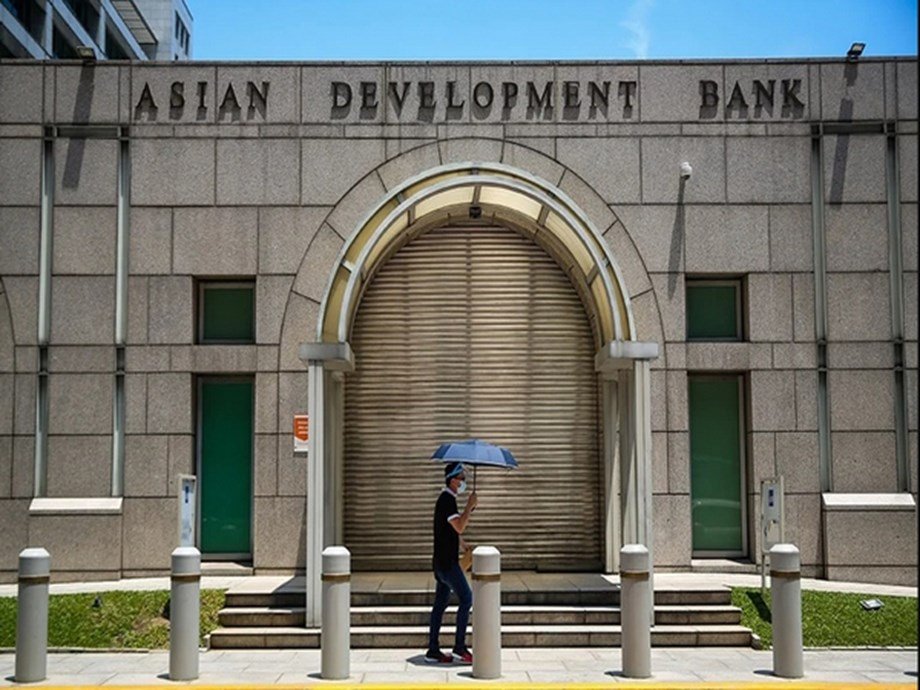The Asian Development Bank (ADB) is strengthening its local currency bond issuance program as part of its broader strategy to provide member countries access to competitive local currency financing while mitigating the risks associated with foreign exchange fluctuations. This approach supports more efficient, inclusive, and sustainable development financing across Asia and the Pacific.
Recently, ADB issued its first-ever bond denominated in Uzbekistan’s national currency, the Uzbekistan sum (UZS), marking a milestone in the Bank’s expanding local currency operations. The bond, issued in June and arranged by Merrill Lynch International, raised UZS312 billion (equivalent to approximately $24.7 million). It was priced at par with a coupon rate of 14.5% and carries a maturity of three years. Uniquely structured as a gender bond, the proceeds from this issuance have been earmarked to support women-owned enterprises located outside the capital city of Tashkent, addressing gender inequality and fostering economic empowerment in underserved regions.
Following this, in July, ADB successfully priced its third local currency bond of the year denominated in Mongolian togrog (MNT). This bond raised MNT30 billion (about $8.4 million), was priced at par with a coupon of 10.30%, and has a maturity term of three years. The bond was underwritten by Standard Chartered Bank and was fully allocated to European asset managers, demonstrating the increasing international appetite for frontier market local currency bonds. The funds raised through this health bond will finance the expansion of a key hospital project in Mongolia, supporting the country’s health infrastructure development.
ADB Treasurer Tobias Hoschka emphasized the strategic importance of these issuances: “The inaugural UZS denominated bond not only broadens the range of currencies in which ADB can issue but also allows us to reach a new set of investors. The MNT bond reflects our successful and expanding local currency operations in Mongolia.” He added, “These bond issues demonstrate ADB’s commitment to assisting borrowers vulnerable to foreign exchange risks in frontier markets, reinforcing our strategic focus on advancing local currency financing initiatives.”
Why Local Currency Bonds Matter
ADB’s local currency bond program is designed to address the challenges faced by developing countries and emerging markets when borrowing in foreign currencies. Currency fluctuations can significantly increase debt servicing costs and financial instability for borrowers who earn revenues predominantly in local currencies. By issuing bonds in local currencies, ADB provides a direct and efficient financing mechanism that reduces exposure to currency risk for both governments and private sector borrowers.
This program also contributes to the development of domestic capital markets by creating benchmark securities, increasing liquidity, and attracting a broader base of investors, including institutional investors who are seeking diversification and local currency exposure. Moreover, by offering bonds in a wider range of currencies, ADB supports financial market deepening and resilience in its member countries.
Impact on Development Goals
The proceeds from these bonds are strategically aligned with ADB’s mission to promote inclusive and sustainable development. The gender bond in Uzbekistan, for instance, is explicitly aimed at empowering women entrepreneurs outside the capital, fostering gender equality and economic inclusion in regions often neglected by mainstream financing. This contributes to broader social development goals by enabling access to capital for marginalized groups and promoting entrepreneurship.
Similarly, the health bond in Mongolia directly supports the expansion of healthcare infrastructure, a critical need in improving public health outcomes and increasing access to quality medical services in the country. Investing in healthcare facilities not only strengthens health systems but also has positive multiplier effects on employment, education, and economic productivity.
ADB’s Local Currency Bond Program: Growth and Innovation
ADB’s local currency bond program has grown significantly in recent years, reflecting the Bank’s evolving role in providing innovative financing solutions tailored to the unique needs of its diverse member countries. The program’s success in countries like Mongolia, Uzbekistan, and others demonstrates ADB’s capacity to leverage capital markets to mobilize resources for development.
By expanding into new currencies and market segments, ADB is broadening its investor base, attracting new institutional players, and fostering international partnerships that amplify the impact of its development financing. These efforts are complemented by technical assistance and policy support aimed at strengthening local financial markets and regulatory frameworks.
Looking Ahead
The expansion of local currency bond issuance by ADB is poised to continue as part of the Bank’s commitment to innovative and inclusive finance. With emerging economies increasingly seeking to mitigate currency risks and build resilient capital markets, ADB’s local currency bonds offer an effective financing alternative that aligns with both borrower needs and investor interests.
As ADB deepens its engagement in frontier markets and diversifies its currency issuance, it will continue to play a pivotal role in advancing sustainable development financing across Asia and the Pacific. These initiatives not only support economic growth but also enhance social equity and environmental sustainability in the region.







